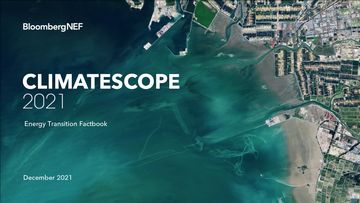Taiwan
With a cumulative score of 2.13, Taiwan ranks number 4 among emerging markets and number 25 in the global ranking.
- Emerging markets
- Asia-Pacific
2.40 / 5
Power score
1.48 / 5
Transport score
Buildings score
Only 56 markets (28 emerging markets) are scored on the Buildings sector. See the full list on the methodology page.
Low-carbon strategy
Net-zero goal and strategy
The island has not set a net-zero goal yet.
Nationally Determined Contributions (NDC)
Even though not among the Parties to the UNFCCC, Taiwan passed its Greenhouse Gases Reduction and Management Law on July 1, 2015, and set the region's 2050 emissions reduction goal to 50% of the 2005 emissions level.
Fossil fuel phase-out policy
There is no fossil fuel phase-out policy in Taiwan.
Power
Power policy
The current administration, which came to power in 2016, has an aggressive energy-transition plan to phase out nuclear by 2025 while adding 25 gigawatts of renewables. The share of renewables in power generation is targeted to reach 20% by 2025, and that of natural gas 50%, while the share assigned to coal by then is expwected to be 30%.
Power policies
Power prices and costs
Taiwan's electronics manufacturing and technology service industries have in recent years initiated strong demand for clean energy. Taiwan Semiconductor Manufacturing Co. (TSMC) signed the island's first offshore wind corporate PPA in July 2020. Before then, Google signed the island’s first corporate PPA with a 10MW solar project in January 2019. In May 2020, eight power consumers and retailers purchased 110GWh of clean energy from five solar farms.
Power market
Utility-scale PV on public land and developer-owned rooftop projects are sometimes determined through auctions organized by local governments. Other projects can receive feed-in tariffs. In the wind sector, 1.7GW of offshore wind projects were awarded through a tender in June 2018. And the government announced in 2021 a new plan to add 15GW of new offshore wind capacity in 2026-35 via auctions.
Installed Capacity (in MW)
Electricity Generation (in GWh)
Utility privatisation
Which segments of the power sector are open to private participation?
Wholesale power market
Does the country have a wholesale power market?
Doing business and barriers
Land is by far the biggest barrier for renewable project development. Local citizens may oppose projects citing land rights, environmental protection and other reasons, delaying if not preventing project construction. Government subsidizes all consumers' power prices, mainly by setting low power prices, controlling their increases and letting Taipower bear the additional cost of power supply.
Currency of PPAs
Are PPAs signed in or indexed to U.S. Dollars or Euro?
Bilateral power contracts
Can a C&I (Commercial and Industrial) customer sign a long-term contract (PPA) for clean energy?
Bilateral power contracts
Can a C&I (Commercial and Industrial) customer sign a long-term contract (PPA) for clean energy?
Bilateral power contracts
Can a C&I (Commercial and Industrial) customer sign a long-term contract (PPA) for clean energy?
Fossil fuel subsidies
Does the government influence the wholesale price of fossil fuel (used by thermal power plants) down through subsidies?
Fossil fuel taxes
Does the government influence the wholesale price of fossil fuel (used by thermal power plants) up through taxes?
Transport
EV market
Taiwan legislated the target in 2017 to electrify all buses for government and public transit by 2030, ban new ICE two-wheelers from 2035, and ban new ICE cars from 2040.
EV policy
To achieve that, the government provides upfront purchase grants and offers tax rebates for two-wheeler EVs. The grant level is adjusted annually, with the 2021 rates up to TWD17,000 (including tax rebate). EVs are exempted from annual vehicle license tax, currently until the end of 2021. At least three cities (Taipei, Taichung and Tainan) offer grants for new chargers installed in public or residential buildings.
Transport policies
Fuel economy standards
Does the country have a fuel economy standard in place?
Buildings
Buildings market
Taiwan launched a four-year energy efficiency program in 2017-20 to save 4.47TWh of electricity and lower power demand by 8.382TWh. The central government has mainly focused on government and school-building energy efficiency, energy saving diagnostics, power and public facility efficiency improvements, and expanding building retrofits. While county-level governments support residential and commercial-building energy-efficiency improvements, mainly with an emphasis on lighting and AC upgrades as well as introducing energy management systems in the service sector. Taiwan offers grants to energy-efficiency service providers on a project-by-project basis, with the current grant level at 4 TWD/kWh of electricity saved under a total cap of TWD10 million per project. Similar grants are available for upgrading lighting, AC and energy management systems. Private banks, such as First Bank, offer special loans for energy efficiency improvements.
Energy performance standards
Are there minimum energy performance standards for buildings?
Energy efficiency plan
Does the country have a national energy efficiency plan?
Buildings policy
The government has yet to implement any substantive policy support in this sector and the low-carbon heat market remains at an early stage.

